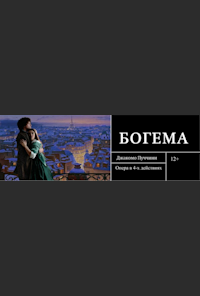Giacomo Puccini is often called the last great operatic composer. Shortly before his death, in one of his letters, he said that "opera has ended as a genre, because people have lost their taste for melody and are ready to tolerate musical compositions that do not contain anything melodic." He was right, at least, that with his departure the history of Italian opera ended - an opera of captivating melodies and the beauty of the human voice.
Humanity, sincerity, passion, action. These words define all of Puccini's work. And the important word here is action, for Puccini was a true master of the theater and firmly followed the conviction that opera is an inextricable fusion of music and action. For this reason, he even abandoned traditional overtures in his operas. He said: “I am a theater person. I see the scene, the characters, I see the gestures of the characters. If I had not seen the scene in front of me, I would not have written a single note.
Immediately after the premiere of Manon Lescaut, Puccini read Henri Murger's novel Scenes from the Life of a Bohemian. “I came across a plot with which I am completely in love,” the composer wrote, and with his characteristic passion, he began to develop a plan for a new opera. For the composer, first of all, the truth of life and the possibilities of melodic diversity that the text would give were important. And that sincerity, warmth and sincerity, which can be called the distinctive features of the opera, are undoubtedly inspired by the memories of Puccini's youth. During the years of study at the Milan Conservatory, he often went hungry, like his heroes. As for the author of the novel, Henri Murger, he was part of the world he wrote about, all the main characters of the novel are based on real prototypes, and Rudolf is Murger himself.
The music was written in eight months, and by the autumn of 1895 La bohème was finished. In 1896, in Turin, the premiere took place on the stage of the Royal Theater. Criticism was more than restrained. A certain Carlo Bersesio even wrote: “La Boheme will not leave any trace in the history of the opera house. The author of this opera should consider his work a mistake.” It must be said that critics were often unfriendly to Puccini, and sometimes even openly hostile, to the point of saying something like this: “It's just a shame that the world thinks that Italian music is mainly the works of this old-fashioned melodist, while in Italy there are such intellectual composers as Ildebrando Pizzetti.” To the credit of the Italian public, she understood the merits of opera much better, enthusiastically applauded and with each new performance she accepted the opera more and more enthusiastically. Very soon, La Bohème was already successfully running in the largest theaters in the world - in London, Berlin, Budapest, Barcelona, Buenos Aires ... In Paris, the opera caused a real sensation, Parisian criticism lifted it to the skies.
Less than a year after the Turin premiere, La bohème was shown for the first time in Russia, at the Moscow Private Opera (Solodovnikov Theatre). Then, in February 1900, it was staged at the Mariinsky Theater in St. Petersburg. Among the first Russian performers are Antonina Nezhdanova, Evgenia Mravina, Leonid Sobinov, Medea and Nikolai Figner, Nadezhda Zabela-Vrubel, Fedor Chaliapin.
Since then, the opera of the “old-fashioned melodist” has not left the Russian stage or the opera stage of the whole world, and has firmly taken its place in the top five most frequently performed operas. The most brilliant singers of the planet - Maria Callas, Renata Tebaldi, Renata Scotto, Mirella Freni, Enrico Caruso, consider it an honor to perform the parts of Mimi and Rudolf,
Mario Del Monaco, Franco Corelli, Luciano Pavarotti, Placido Domingo, Jose Carreras...
Perhaps it is thanks to the amazing melody and brilliant achievements in the vocal field that Giacomo Puccini's operas remain the best of the best. As Tito Gobi wrote, “There is hardly a work more suitable for an opera singer than this impeccable masterpiece of Puccini, La bohème. He is so melodic, so quickly captivates the listeners that sometimes they tend to underestimate him, forgetting that only a true genius can convey simplicity, tenderness and genuine feeling in a form accessible to everyone.




